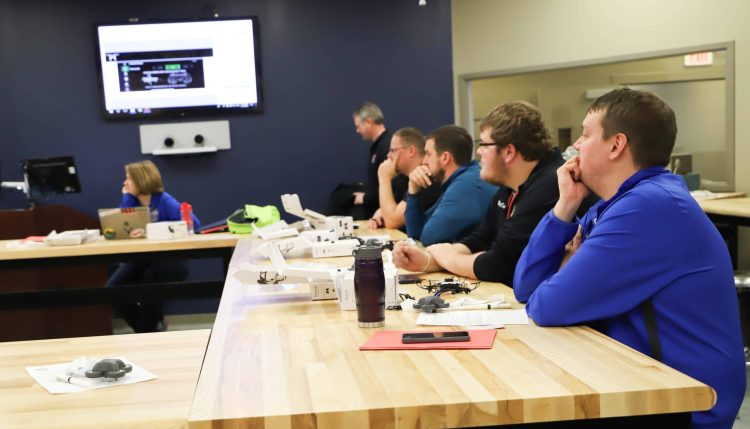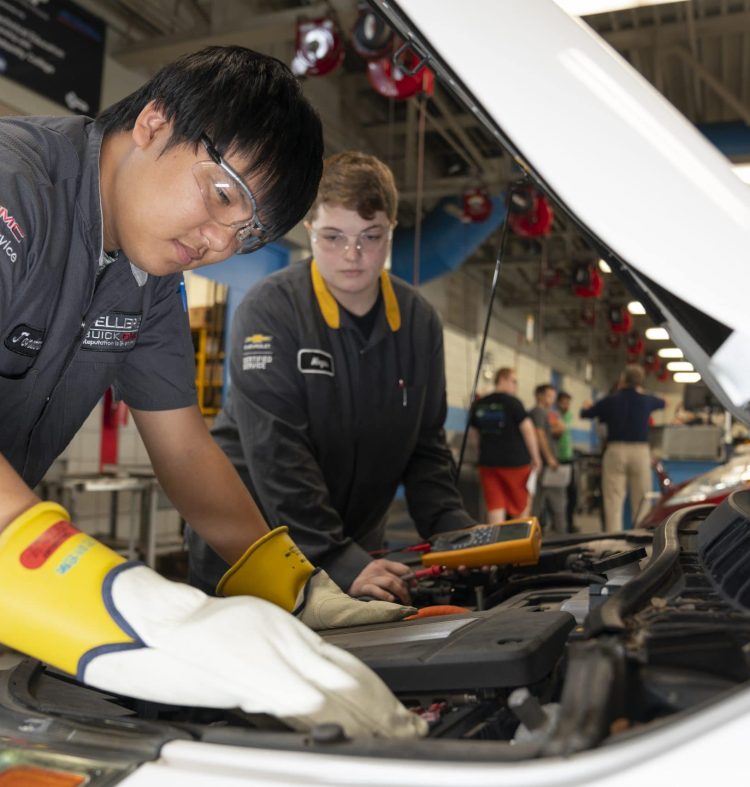We [SERVE] by providing educational resources for curriculum interactive content, application and exchange of ideas for autonomous technologies across the country.
Ambassador Program
The NCAT Ambassador Program helps grow connections and collaboration amongst the ATE community. Being an ambassador is defined as; a person who acts as a representative or promotor of a specified activity. The Ambassador Program will help ensure that significant ATE expertise and knowledge extends beyond the life of the work.
With the design and implementation of a process to encourage PIs and SMEs to continue working with currently funded projects and centers in the ATE community. In this way, there is a "re-seeding" and embedding content, models, tools, contacts, and best practices back into the community to inspire and sustain growth.
The Ambassador Program helps enable the legacy work of ATE to continue and be of use to new stakeholders and audiences. The synergy created by bringing experts and their knowledge bases into existing centers, projects and coordination networks helps scale and sustain the broader body of work under NSF ATE.
With the design and implementation of a process to encourage PIs and SMEs to continue working with currently funded projects and centers in the ATE community. In this way, there is a "re-seeding" and embedding content, models, tools, contacts, and best practices back into the community to inspire and sustain growth.
The Ambassador Program helps enable the legacy work of ATE to continue and be of use to new stakeholders and audiences. The synergy created by bringing experts and their knowledge bases into existing centers, projects and coordination networks helps scale and sustain the broader body of work under NSF ATE.




Shaping Policy & Standards
The NCAT team serves on various advisory committees for organizations that support policy, standards and regulations for autonomous technology. By serving on these committees, NCAT provides influence to help shape future environments of autonomous technologies.
NCAT Team members serve on the following advisory committees:
- ASSURE | Alliance for System Safety of UAS through Research Excellence
- ASTM | American Society for Testing and Materials
-ASE | Automotive Service Excellence
- AED | Associated Equipment Distributors
- MNDOT CAVX | Minnesota Department of Transportation Connected and Automated Vehicles
- FAA UAS-CTI | Unmanned Aircraft Systems Collegiate Training Initiative
- NCATC | National Coalition of Advanced Technology Centers
- MAGMA | Michigan Alliance for Greater Mobility Advancement
- SpaceTEC | National Resource Center - Aerospace Technical Education
- CertTEC | Technical Skills Certification
NCAT Team members serve on the following advisory committees:
- ASSURE | Alliance for System Safety of UAS through Research Excellence
- ASTM | American Society for Testing and Materials
-ASE | Automotive Service Excellence
- AED | Associated Equipment Distributors
- MNDOT CAVX | Minnesota Department of Transportation Connected and Automated Vehicles
- FAA UAS-CTI | Unmanned Aircraft Systems Collegiate Training Initiative
- NCATC | National Coalition of Advanced Technology Centers
- MAGMA | Michigan Alliance for Greater Mobility Advancement
- SpaceTEC | National Resource Center - Aerospace Technical Education
- CertTEC | Technical Skills Certification
Future of Educational Programs
NCAT routinely consults and advises two-year technical institutions on autonomous technologies program and course development. NCAT is investigating the development of a core curriculum for an autonomous technician certificate as a stackable credential into specific autonomous technology pathways.
[ Mentoring Schools, Faculty and Administration ]
NCAT engages one-on-one with educators (7-12 and post-secondary) to provide guidance and recommendations regarding: -Starting new UAS programs -Equipment recommendations based on individual program needs and budgets -Curriculum dissemination -Funding sources -Professional development opportunities such as the DRONETECH Educator Workshops
NCAT provides direct one-on-one support through presentations, interview, resources, advising, and mentoring to 7-12 schools and two/four-year institutions or education-based organizations.
[ Mentoring Schools, Faculty and Administration ]
NCAT engages one-on-one with educators (7-12 and post-secondary) to provide guidance and recommendations regarding: -Starting new UAS programs -Equipment recommendations based on individual program needs and budgets -Curriculum dissemination -Funding sources -Professional development opportunities such as the DRONETECH Educator Workshops
NCAT provides direct one-on-one support through presentations, interview, resources, advising, and mentoring to 7-12 schools and two/four-year institutions or education-based organizations.



Resource Hub
As the first national ATE center in autonomous technologies, NCAT leads the crafting, adapting, and implementation of educational resources and serves as a resource hub for evidence-based research on the knowledge and skills needed for students to succeed in the autonomous technology technical workforce. NCAT provides leadership to colleges and universities setting up degrees in autonomous technologies through curriculum development support, guidance in selection of resources and identification of workforce requirements.
NCAT's foundation is to expand and grow autonomous technologies knowledge among secondary and post-secondary faculty, instructors, and administrators through mentorship and coordination of collaborations.
VIEW RESOURCES
NCAT's foundation is to expand and grow autonomous technologies knowledge among secondary and post-secondary faculty, instructors, and administrators through mentorship and coordination of collaborations.
VIEW RESOURCES
